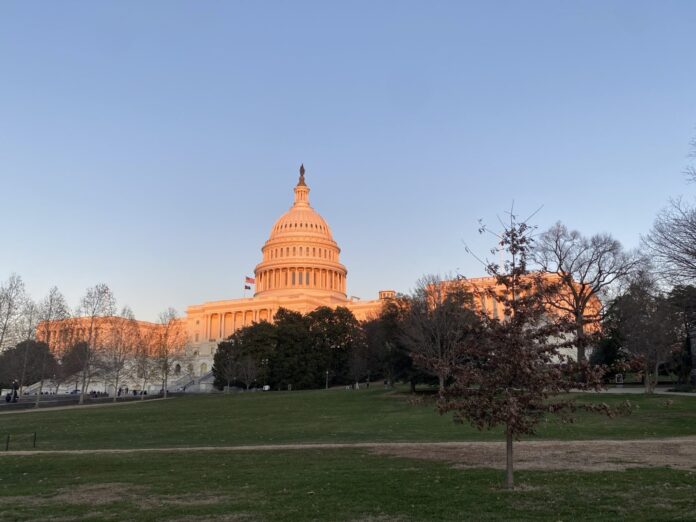
Last week, the U.S. Senate passed legislation aimed at bolstering the Beagle Brigade, a specialized group of canine units stationed at airports and ports of entry as a line of defense against the spread of devastating foreign animal diseases.
Officials say the Beagle Brigade Act solidifies the U.S. Department of Agriculture’s National Detector Dog Training Center based in Newnan, Georgia.
The center trains beagles and other skilled dogs to inspect luggage, vehicles and cargo that comes into the U.S. The dogs are trained to identify prohibited agricultural items that could introduce harmful pests, invasive plants or dangerous viruses.
The bill was pushed by U.S. Sens. Raphael Warnock (D-GA) and Joni Ernst (R-IA).
“Every day, USDA’s National Detector Dog Training Center in Newnan plays an essential role in keeping our food supply safe from contamination. This legislation permanently authorizes their work and will continue to strengthen our nation’s agriculture industry and the well-being of our communities,” Warnock said. “As a member of the Senate Agriculture committee and champion for Georgia’s farmers, I am proud to have worked with Senator Ernst to get this bipartisan legislation passed through the Senate and one step closer to becoming law.”
Ernst added: “We need all hands – and paws – on deck to keep our agriculture community safe from foreign animal diseases like avian influenza, foot-and-mouth disease and African swine fever.”
“The Beagle Brigade is essential to sniffing out items that may harbor these threats, stopping them in their tracks before they can endanger our farms and food supply,” he said. “As this bipartisan legislation moves forward, we can better support another critical line of defense against harmful diseases, pests, and plants, offering our farmers peace of mind as they work to protect their livestock and crops.”
Congressional authorization also would allow for federal appropriations to be distributed directly to the training center in Newnan. Currently, the facility is funded through USDA user fees, and officials believe the new law would provide more “consistent” funding.







